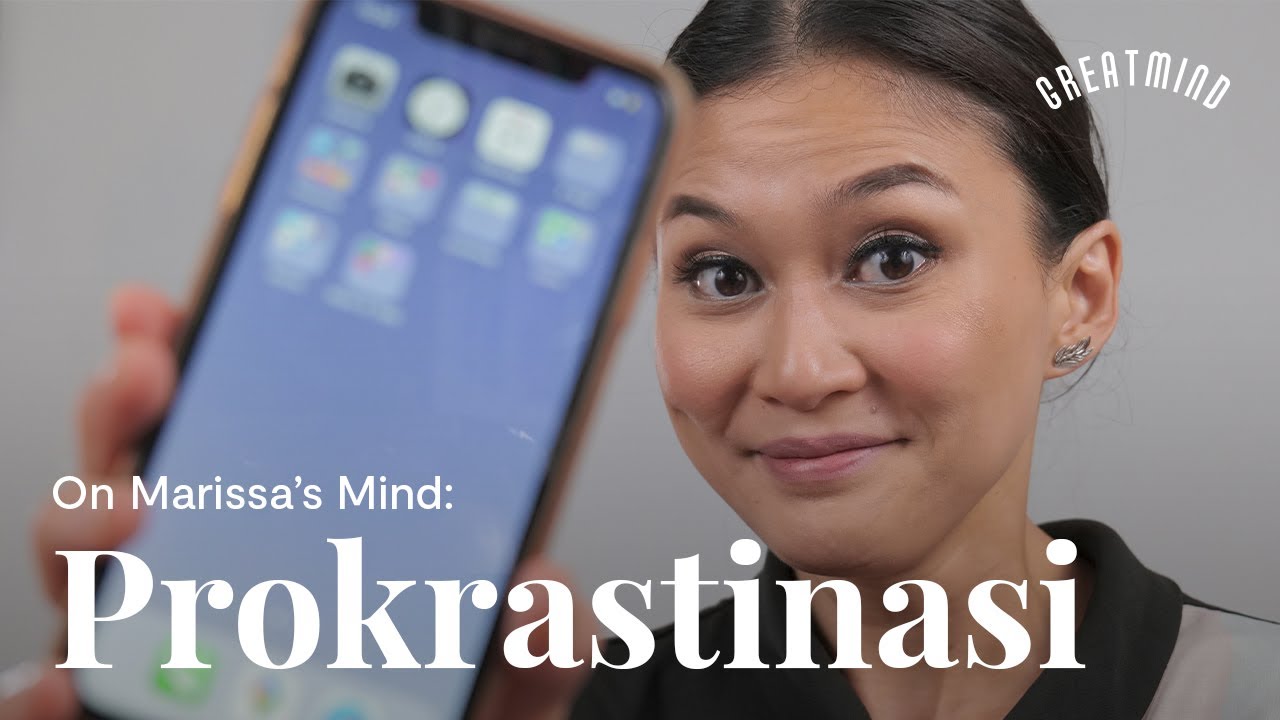Técnica contra a procrastinação
Summary
TLDRThis video explores procrastination and offers practical solutions to help viewers overcome it. The host discusses how procrastination negatively impacts productivity and highlights the importance of discipline and self-regulation. Key strategies are shared, including understanding the cognitive battle between emotions and rational thought, and using a simple habit-tracking table to develop discipline. The video emphasizes starting with small, achievable goals and monitoring progress to ensure long-term success. Recommended reading includes books like 'The End of Procrastination' and 'Atomic Habits' to deepen understanding and tackle procrastination effectively.
Takeaways
- 😀 Procrastination is the habit of delaying tasks, impacting productivity, and is often caused by lack of discipline.
- 😀 Discipline is the ability to push through negative emotions like laziness and lack of willingness in favor of a goal.
- 😀 The brain's neocortex (rational) and limbic system (emotional) are constantly in conflict, influencing procrastination behaviors.
- 😀 A Buddhist metaphor of a wild elephant and a tamer represents the struggle between emotions and reason in overcoming procrastination.
- 😀 Cognitive resources, such as self-regulation and discipline, are exhaustible throughout the day, meaning they diminish as they are used.
- 😀 Like concentration, self-regulation can be replenished through breaks or activities like walking or coffee to recharge your willpower.
- 😀 Pomodoro technique is a helpful strategy for sustaining focus and self-regulation by incorporating breaks for recharging cognitive resources.
- 😀 Self-regulation and discipline are critical in maintaining good habits and overcoming procrastination, but creating habits makes them easier to maintain.
- 😀 To develop habits, start with a small, manageable goal that is almost impossible not to achieve, avoiding overwhelming your capacity.
- 😀 Use a habit tracking table to monitor daily progress, marking achievements with green, failures with red, and use blue dots for unavoidable exceptions.
- 😀 Self-monitoring and tracking progress with tools like a habit table are effective in building and maintaining new habits over time.
Q & A
What is procrastination and how does it affect productivity?
-Procrastination is the act of putting things off until later, often leading to reduced productivity and efficiency. It prevents us from completing important tasks, which affects both our personal and professional lives.
Can procrastination be changed?
-Yes, procrastination is a behavior and attitude that can be changed. By understanding its causes and using practical strategies, such as building self-discipline and forming habits, it’s possible to overcome procrastination.
What is the main cause of procrastination discussed in the video?
-The video highlights a key cause of procrastination as the lack of discipline. This involves not following through with tasks, even when we know what needs to be done, and negotiating with ourselves to avoid taking action.
How does discipline relate to overcoming procrastination?
-Discipline is the ability to overcome negative emotions like laziness or discomfort and take action toward a goal. It’s crucial for overcoming procrastination, as it helps us resist the temptation to delay tasks in favor of instant gratification.
What does the metaphor of the wild elephant and the tamer represent?
-The wild elephant represents our emotional, impulsive side that seeks immediate pleasure, while the tamer symbolizes our rational mind, which can control and direct the elephant's behavior. The metaphor illustrates how we need to tame our emotional impulses in favor of long-term goals.
What role do cognitive resources play in self-regulation?
-Cognitive resources are finite and can get depleted throughout the day. When we constantly self-regulate and resist temptations, we use up these resources. As a result, by the end of the day, we may have less self-control, making it harder to resist procrastination.
What is a recommended strategy for replenishing cognitive resources?
-Taking breaks throughout the day helps replenish cognitive resources. Techniques like Pomodoro (working in focused intervals with short breaks) or engaging in activities like a quick walk or coffee break can help renew your ability to self-regulate.
What is the importance of creating small, manageable goals when building new habits?
-Setting small, achievable goals helps avoid overwhelming yourself. Starting with a minimal, reasonable target makes it easier to succeed and build momentum, which is crucial for developing lasting habits without burning out.
How does the habit-tracking table work?
-The habit-tracking table allows you to monitor your daily habits. You track whether you completed each habit by marking it with green (if done) or red (if missed). At the end of the day, you evaluate your performance on a scale of 1-10. The table helps build consistency and accountability.
What is the purpose of using a blue dot in the habit-tracking table?
-The blue dot is used to mark days when habits couldn’t be completed due to valid reasons, such as illness or travel. It’s a way to distinguish between missed habits due to unavoidable circumstances and simple procrastination.
Outlines

This section is available to paid users only. Please upgrade to access this part.
Upgrade NowMindmap

This section is available to paid users only. Please upgrade to access this part.
Upgrade NowKeywords

This section is available to paid users only. Please upgrade to access this part.
Upgrade NowHighlights

This section is available to paid users only. Please upgrade to access this part.
Upgrade NowTranscripts

This section is available to paid users only. Please upgrade to access this part.
Upgrade NowBrowse More Related Video

Apa itu Prokrastinasi dan Bagaimana Cara Mengatasinya?|| Materi BK Kelas 11 Semester 2

On Marissa's Mind: Prokrastinasi

Untuk Yang Ambisius Tapi Malas

How To Stop Procrastinating

ЯК ПОЗБАВИТИСЬ ПРОКРАСТИНАЦІЇ НАЗАВЖДИ | 8 наукових технік | український науково-популярний контент

How to Beat Procrastination (with science)
5.0 / 5 (0 votes)